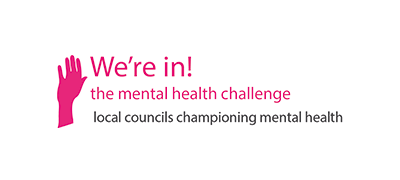By Cllr Ed Davie, Mental Health Champion for Lambeth Council
As the longest serving Champion, I have had the privilege of watching the network grow to over 100 and seeing some wonderful work being done by colleagues across the country.
Now I have condensed what I have learnt in a decade as a councillor, health charity worker and public health masters student into a new Local Government Association (LGA) handbook for councillors to support mentally healthier communities.
Mental ill health costs thousands of lives and over £105 billion every year, an average of £700 million per upper tier council area, in England alone.
If everyone was free of abuse and poverty, living in decent homes, with access, via tree-lined walking and cycling routes, to high quality work, community and green spaces, much of this illness, early death and financial cost could be avoided.
That may sound ambitious, but the founders of modern local government in Victorian Britain all but ended cholera here by clearing slums and building a massive clean water system. About a century later a bankrupt and exhausted post-war UK still managed to create the NHS, welfare state and two million homes.
Open sewers and unpayable doctor’s bills in this country are long gone, but inequality, air pollution and chronic mental ill health are modern equivalents that need urgent action.
Covid-19, and the measures taken to counter it, have exposed glaring inequalities and caused huge health and economic harm. That makes supporting mentally healthier communities even more important. In doing so, we must also tackle the inequalities that lead to black people being four times more likely to die of Covid than white people – a disproportionality reflected in serious mental illness rates.
We must support councils to use the tools they used so effectively during the height of the Covid-19 crisis to tackle the more deep-seated structural problems that cause more physical and mental ill health amongst our poorest, and disproportionately our Black, Asian and Minority Ethnic, communities.
As part of that effort clinical psychologist, Dr Katherine Garzonis, and I have applied our academic expertise and practical experience of NHS, charity and council work to bring together guidance, challenges, useful links, case studies, activities, hints and tips.
The workbook is structured around the World Health Organisation’s three determinants of health: individual characteristics and behaviour, the physical environment and economic context.
The section on individuals uses psychological insights to suggest how councils can support better relationships and encourage more exercise, among other behaviours, to improve mental health.
In the physical environment section, we explore how planning and licensing powers can be used to encourage better housing, transport and community relations whilst reducing crime, air pollution and access to cheap alcohol, harmful gambling and poor quality food.
Finally, improving the economic context is going to prove the biggest challenge as we enter a deep recession, but there is much more councils can do to support Living Wage Accredited anchor institutions at a time when global supply lines have been exposed as environmentally and socially unsustainable.
Along with the related issue of climate change, tackling inequality, most visible in different health outcomes, is the challenge of our times. The failure to deal with it risks seriously destabilising our global and local communities. From cholera to Covid, councils have been at the forefront of tackling ill health – now we must direct those resources towards creating mentally healthier communities where everyone can thrive.
Councillor Ed Davie MPH is Mental Health Foundation’s Communities Lead and also Lambeth Council Cabinet Member for Children and Young People, a Local Government Challenge Mental Health Champion and an LGA Peer




